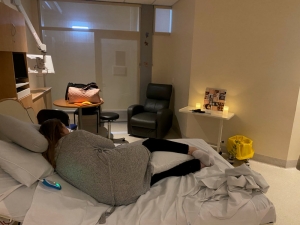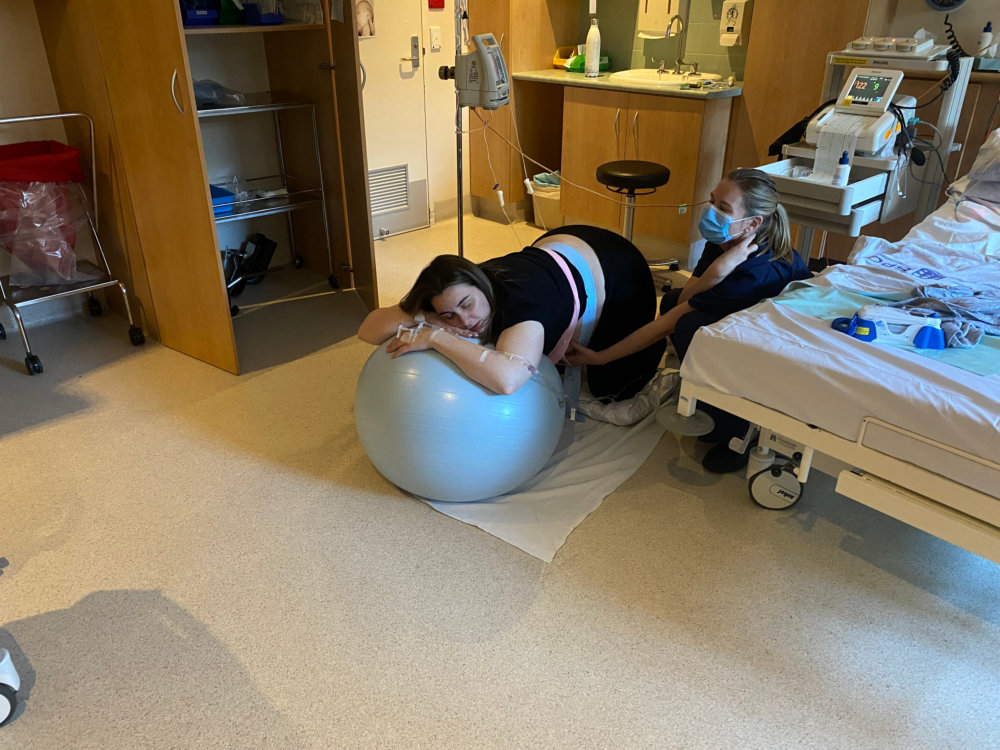How Hypnobirthing Can Help You Have a Calm, Confident Birth
Pregnancy is an exciting time, but for many mums-to-be, the thought of giving birth can bring up feelings of anxiety or fear. After all, birth is one of life’s most transformative experiences, and it’s completely natural to feel a little nervous about it.
That’s where Hypnobirthing comes in—an empowering method designed to help you approach your birth with confidence, calm, and trust in your body’s ability to do what it was designed to do.
As both a midwife and hypnobirthing practitioner, I’ve seen firsthand how hypnobirthing can transform the birth experience. It’s not about eliminating pain (because let’s face it, birth is intense), but about helping you manage your mindset, breathe through the intensity, and stay relaxed—ultimately giving you a sense of control, peace, and empowerment.
In this post, I’ll share what Hypnobirthing is, how it can benefit you, and how you can take my hypnobirthing classes—whether through group sessions or online with a face-to-face option.
What is Hypnobirthing?
Hypnobirthing is a mind-body approach to childbirth that helps you approach birth with a calm, positive mindset. It focuses on using relaxation techniques, breathing exercises, and visualizations to reduce fear and anxiety, allowing your body to work more efficiently during labor.
By preparing both your mind and body, hypnobirthing gives you the tools to feel confident and in control. It’s about trusting your body, knowing how to relax, and creating a space where you feel supported during birth.
Hypnobirthing is built on three main principles:
-
Relaxation – Learning how to deeply relax and let go of tension.
-
Breathing Techniques – Using controlled breathing to help you stay calm and focused during labor.
-
Positive Affirmations and Visualizations – Reprogramming your mind to stay calm, positive, and focused.
The Benefits of Hypnobirthing:
-
Reduced Anxiety: By preparing mentally, hypnobirthing helps you release fear and anxiety around birth.
-
More Relaxed Birth: Relaxation techniques help reduce tension, which can ease the physical intensity of labor.
-
Increased Confidence: The more informed and prepared you and your partner are, the more confident you’ll both feel.
-
Faster Labor: Studies have shown that relaxed mothers tend to have shorter, less complicated births.
-
Better Birth Outcomes: Less stress for mum can mean less stress for baby, and more positive birth experiences.
How My Hypnobirthing Classes Can Help:
I offer two different hypnobirthing class formats to help you feel prepared, confident, and calm no matter what your schedule or preferences are.

Light touch massage
Option 1: Group Hypnobirthing Classes
If you love connecting with other expectant mums and learning in a supportive, community environment, my group hypnobirthing classes are a perfect choice. These are small, intimate classes where we’ll work together to practice breathing techniques, positive affirmations, and relaxation exercises.
-
What’s included:
-
2 in person sessions of hypnobirthing techniques and relaxation strategies
-
Guided visualizations to prepare you for your birth experience
-
Partner participation: Your birth partner will learn how to support you during labor
-
Group discussion: Share your thoughts, experiences, and support each other
-
These classes are a great way to build a network of other mums who are on the same journey as you.
Option 2: Online Hypnobirthing with a Face-to-Face Session
For those who prefer the flexibility of learning from home, I offer an online hypnobirthing program that includes everything you need to prepare for your birth, with the added benefit of one face-to-face session to personalize the experience and answer any questions you might have.
-
What’s included:
-
Interactive modules on relaxation techniques, breathing, and mindset
-
A 1-hour face-to-face session (either in-person or via Zoom) to go over any questions and get support with your specific birth plan
-
Resources to help you stay calm and empowered through the final weeks of pregnancy
This option is ideal for those with busy schedules or who prefer to learn at their own pace but still want that personal connection and guidance.
Which Option is Right for You?
Choosing the best hypnobirthing class format depends on your preferences, schedule, and what feels most comfortable for you.
-
If you love the idea of group support and connecting with other expectant mums, the group classes are a wonderful way to share the journey and learn together.
-
If flexibility is key or you live in a different area, the online program with the face-to-face session gives you the convenience of learning at your own pace, with the personal touch you need to feel confident.
-
Refresher session
Get Started on Your Calm, Confident Birth Journey

Create your calm space
No matter how you choose to prepare for your birth, hypnobirthing is an empowering, positive way to approach labor and delivery. The right mindset and preparation can make all the difference in helping you feel calm and in control.
Book Your Hypnobirthing Class Today!
If you’re ready to get started, book your hypnobirthing class now, and let’s work together to create the calm, confident birth you deserve.
Have Questions?
If you’re unsure which option is right for you or have any questions about hypnobirthing, feel free to contact me here—I’d love to help!





